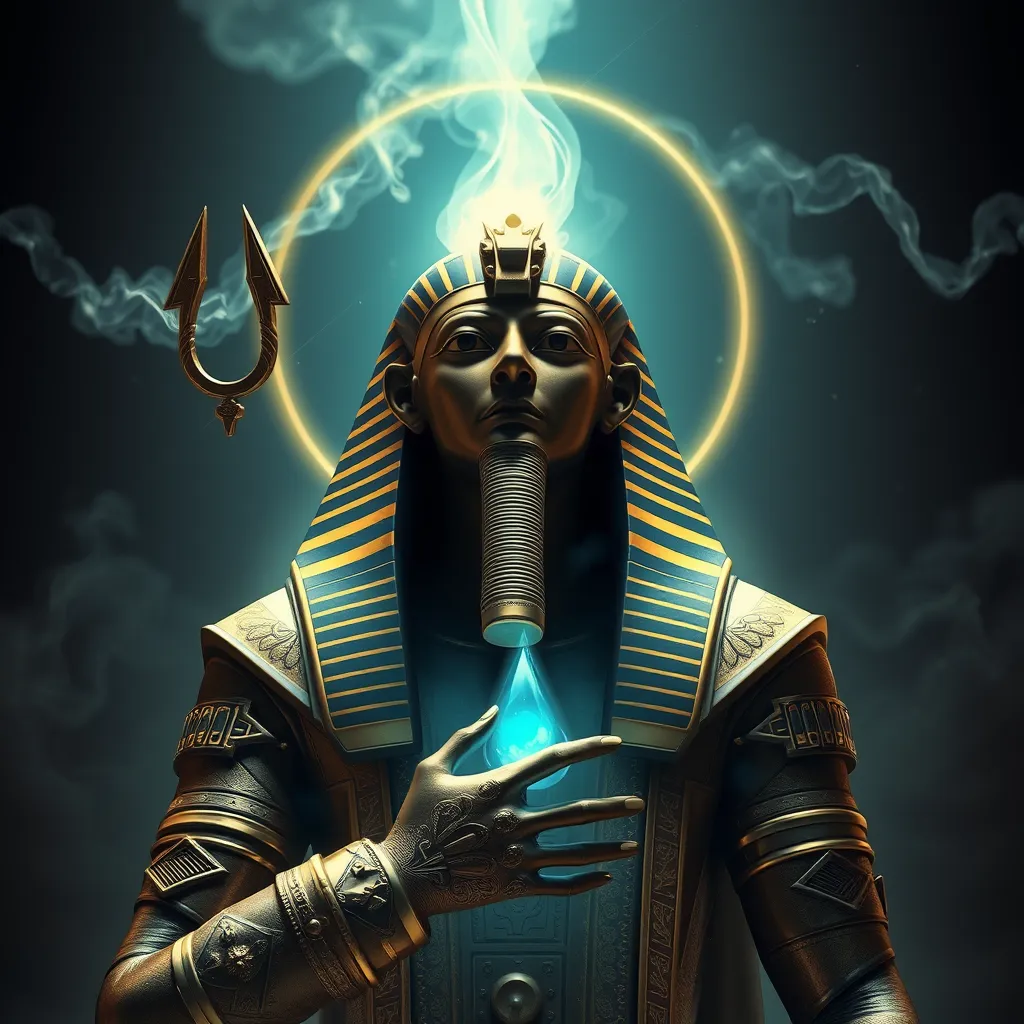The God of Magic: The Myth of Thoth and His Role in Guiding the Pharaoh
I. Introduction
In the rich tapestry of Egyptian mythology, few deities hold as prominent a place as Thoth, the God of Magic, Wisdom, and Writing. Revered by the ancient Egyptians, Thoth was believed to embody the essence of knowledge and the mystical arts, playing a critical role in both the divine and mortal realms. The importance of magic in ancient Egyptian society cannot be overstated; it was intertwined with their religion, governance, and daily life. This article aims to explore the multifaceted character of Thoth, his origins, attributes, and the profound impact he had on guiding the Pharaohs and maintaining cosmic order.
II. The Origins of Thoth
Thoth’s origins are steeped in myth and legend, often depicted as a divine figure whose birth was shrouded in mystery. According to various myths, he was either born from the mind of the sun god Ra or emerged from the primordial waters of Nun.
- Birth and Early Myths: In some accounts, Thoth is considered to have been born during the creation of the world, representing intellect and thought.
- Attributes and Symbols: Thoth is often depicted with the head of an ibis or a baboon, animals associated with wisdom and knowledge. His primary symbols include the writing palette, stylus, and the ankh, representing life.
- Place in the Pantheon: As a member of the Ennead, Thoth occupied a vital role among the gods, often serving as a mediator and advisor in divine matters.
III. Thoth as the God of Wisdom and Writing
Writing and knowledge were paramount in ancient Egyptian culture, and Thoth was revered as the god who presided over these domains. His contributions to wisdom and writing are legendary.
- Significance of Writing: The ability to record information, religious texts, and historical events was crucial for the ancient Egyptians. Writing was seen as a divine gift, allowing them to communicate with the gods and preserve their legacy.
- Scribe of the Gods: Thoth was often referred to as the scribe of the gods, responsible for recording the deeds of the deities and the fates of mortals.
- Invention of Hieroglyphics: According to myth, Thoth invented hieroglyphics, the sacred writing system that would become central to Egyptian civilization.
IV. Thoth and the Concept of Ma’at
Ma’at, representing truth, justice, and cosmic order, was a fundamental principle in ancient Egyptian thought. Thoth played a crucial role in upholding these ideals.
- Explanation of Ma’at: Ma’at personified harmony and balance in the universe, serving as a guide for ethical behavior and governance.
- Maintaining Cosmic Order: Thoth was believed to assist in maintaining Ma’at, ensuring that the chaos was kept at bay and that the universe remained in balance.
- Relationship with Pharaoh’s Authority: The Pharaoh, as the earthly embodiment of Ma’at, relied on Thoth’s wisdom to govern justly and to fulfill the divine order.
V. Thoth’s Influence on Magic and Ritual
Magic was an integral part of daily life and religious practices in ancient Egypt, and Thoth was seen as the patron of magical arts.
- Practice of Magic: The Egyptians believed that magic could influence the forces of nature and the will of the gods, necessitating skilled practitioners who often invoked Thoth’s name.
- Association with Spells: Many spells and incantations were attributed to Thoth, believed to carry his divine authority and effectiveness.
- Rituals Involving Thoth: Rituals invoking Thoth were performed to ensure success in endeavors, protection against evil, and to seek knowledge.
VI. Thoth in the Afterlife and Judgment
The ancient Egyptians had a profound belief in the afterlife, and Thoth played a pivotal role in the judgment of souls.
- Weighing of the Heart Ceremony: Thoth was tasked with recording the results of the weighing of the heart against the feather of Ma’at, determining whether a soul was worthy of entering the afterlife.
- Guidance of Souls: Thoth was believed to guide souls through the underworld, providing them with knowledge and protection on their journey.
- Connection to Pharaoh’s Legacy: The Pharaoh’s success in the afterlife was thought to be influenced by Thoth, directly impacting their legacy and the stability of the kingdom.
VII. Thoth in Art and Literature
Thoth’s influence extended beyond religious practices into the realms of art and literature, leaving a lasting mark on Egyptian culture.
- Representation in Art: Thoth was commonly depicted in tomb paintings and temple reliefs, often shown in the company of other deities or engaged in acts of writing and recording.
- Myths and Stories: Numerous myths and stories feature Thoth, highlighting his wisdom and cleverness, often portraying him as a mediator in conflicts among the gods.
- Enduring Legacy: Thoth’s legacy continues in modern culture, influencing literature and art inspired by ancient Egyptian mythology.
VIII. Conclusion
Thoth stands as a significant figure in Egyptian mythology, embodying wisdom, magic, and the principles of Ma’at. His influence on magic and leadership is evident in the way he guided the Pharaohs and contributed to the cosmic order. The reverence for Thoth illustrates the ancient Egyptians’ understanding of the interconnectedness of knowledge, power, and morality. As we reflect on the role of deities like Thoth, we gain insight into how they shaped societies and provided frameworks for governance and ethical conduct.




